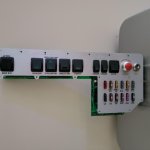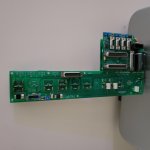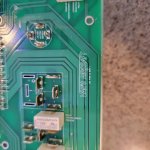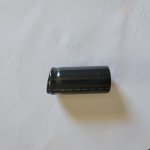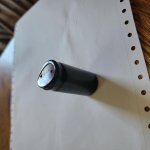I have a 2011 12 and am not the builder. Been running great until this morning. Started out with getting A/P error on start. Wouldn't reset and couldn't shut down from AP74. Eventually it did reset and everything was good. Taxied out to do run up and that's when fun began. RPM to 4000 A side off and about 120 drop. Back on and up to 4000, B side off and it dropped about and 150 and sounded kind of rough. B side back on and that's when white smoke started flowing out of panel below the rocker switches. Immediately shut and down..after grabbing fire extinguisher..just in case. The smoke continued for about 10 seconds after shutdown.
Took back to hanger and started opening things up. Found no indications of fire or heat. Upon further inspection found an oily residue under rocker switches. Since there is a large electrolytic capacitor just above that area I assumed it had failed and was leaking. I have it all apart and it doesn't seem to be bulged or leaking. Next step is dissembling and removing from the board for test.
I'm wondering if this something anyone else has had to deal with and if it's just easier to order the entire assembly. It looks like it was built by Vans as the pcb board has their imprint on it.
I'm trying to find a part number to see if it's even available. Attached are a couple of pics.
Any help or pointers would be appreciated
Took back to hanger and started opening things up. Found no indications of fire or heat. Upon further inspection found an oily residue under rocker switches. Since there is a large electrolytic capacitor just above that area I assumed it had failed and was leaking. I have it all apart and it doesn't seem to be bulged or leaking. Next step is dissembling and removing from the board for test.
I'm wondering if this something anyone else has had to deal with and if it's just easier to order the entire assembly. It looks like it was built by Vans as the pcb board has their imprint on it.
I'm trying to find a part number to see if it's even available. Attached are a couple of pics.
Any help or pointers would be appreciated



